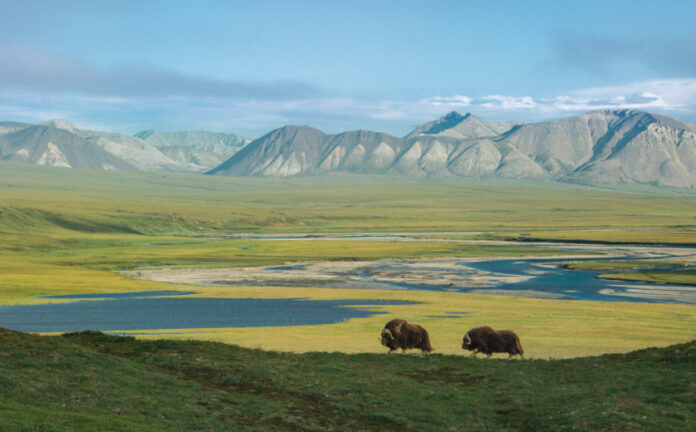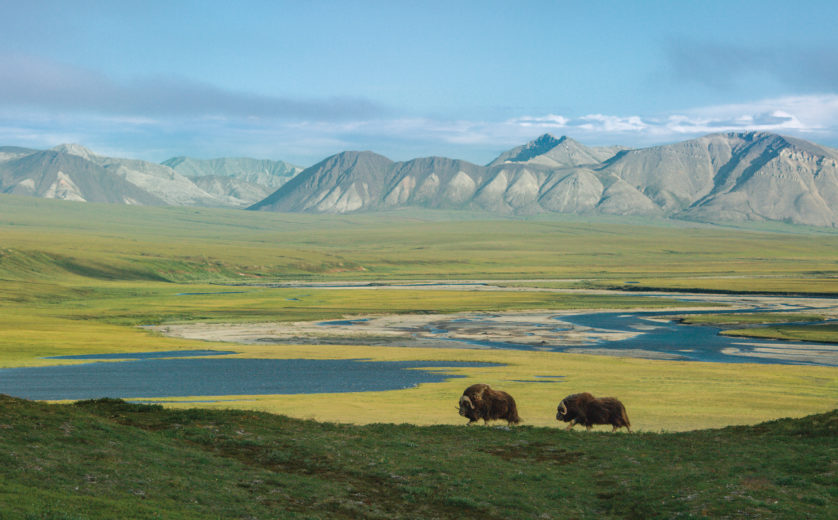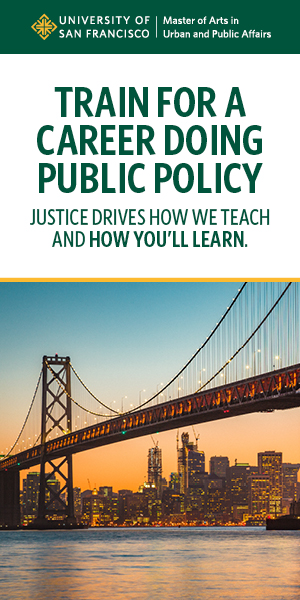There’s been an avalanche lately of timely political documentaries, and if you have more than a passing interest in such things, it’s hard not to feel a bit buried amidst the onslaught. As important as this input is (particularly as rebuttal to and/or contextualizing of our era’s crisis-driven everyday news), there is such a thing as information overload. While surely there are folk out there who still need reminding, I don’t know anyone who doesn’t yet realize that voting in a few weeks is very, very important—and I’m not sure how many more documentaries I can take in which that’s the main takeaway.
However, a couple new nonfiction features do have a degree of novelty as well as urgency, in that they cover issues that are crucial but haven’t yet become a focus for much mainstream media coverage. That is, beyond individual cases (like the Keystone pipeline) or hotspots (such as the Bay Area’s own housing crisis). One concerns the future of urban life; the other, the future of our wilderness. As with so many other things, both these general issues are certain to greatly worsen under a second Trump term.
David Garrett Byars’ Public Trust, which will be available free on YouTube as of Fri/25, looks at what some consider the last frontier of true equality in a U.S. that (like most other nations) is growing every more economically-unequal: Access to public lands. The very concept only goes back a century or so, when people like Teddy Roosevelt began realizing that America’s vast scenic and wildlife treasures might actually require protection. Such ideas had bipartisan support for a long time. The Environmental Protection Agency, Clean Air & Water Acts, Endangered Species Act and other cornerstones of government ecological stewardship were all launched under President Nixon, no one’s idea of a twirly-dancing tree-hugger.
But the Reagan era began chipping away at regulation, while also characterizing environmentalists as anti-capitalist crazies in order to benefit industry. The post-9/11 push for alleged “energy independence” accelerated what was already a stealth movement toward privatization of public lands, which include wildlife refuges, national forests and grasslands, etc., as well as parks. Shadowy tycoons like (who else but) the Koch Brothers have long been trying to wrest public lands from Federal control to that of states, where greedy politicos are more inclined to sell them off. Meanwhile, they promote the notion that taking public lands away from the public is somehow more “American,” more “freedom.”
Allowing limited mining or drilling may not seem so bad, and lobbyists certainly labor to make it look harmless enough. But the truth is that such endeavors (while sold as benefitting “everyone”) really only ever truly enrich a few. Then once the resources are exhausted, taxpayers invariably get stuck with the bill for repairing destroyed ecosystems and other damage, if that’s even possible. It’s noted there are over 160,000 abandoned mining sites in the US, whose cleanup and reclamation would cost taxpayers $50+ billion.
Needless to say, the push to open public lands to industrial exploitation, and release those industries from responsibility for damage, has greatly accelerated under Trump—who has almost exclusively appointed industry advocates and kingpins to the very agencies meant to police them. Undoing Obama’s environmental actions has been a top priority, no doubt motivated by simple spite as well as greed. Insults to sacred tribal lands and tribespeoples’ rights have also grown cruelly deliberate.
The first feature produced by everybody’s favorite activist clothier Patagonia, with Robert Redford among its executive producers, Public Trust is almost too slick at first, with stunning views of national parklands making the documentary feel like a travel informercial at times. But so much eye candy only renders the more horrifying Byars’ climactic survey of an administration in the pocket of fossil-fuel lobbyists, not phased in the least by concerns over conserving our natural resources for future generations when there’s profit to be made now.
If they’re not stopped, we may find ourselves in the “Ayn Randian explosion” of “a world where everything is for sale,” where all access to wilderness (or what’s left of it) is monetized, and the “public land” concept is extinct—just like many of the species who used to live there.
Another “extraction industry,” albeit one less obvious than the drilling/mining kinds, is the focus of Fredrik Gertten’s Push, which can be streamed via Roxie Virtual Cinema starting Fri/25. Its principal character is Leilani Farha, a Canadian who works as a Special Rapporteur on Adequate Housing for the United Nations—and in which capacity she sees a major crisis brewing worldwide. In her own home of Toronto, the last thirty years have seen housing costs rise at four times the rate of income. In many cities, people born there can no longer afford rents; they’re forced out to make way for upscale tenants, and/or their dwellings bulldozed for “luxury” development.
We used to call this the price of gentrification. As Farha now realizes, however, blaming that trend is becoming outdated. Because what’s increasingly displacing lower and even middle-class citizens now, destroying whole communities, isn’t really “richer people moving in” anymore. It’s richer people (or, still more often, offshore corporations) buying or building residential properties that, often, no one lives in. They’re not even intended to be lived in; they’re simply investments, the more valuable for staying pristinely empty. Whole neighborhoods in some of the most expensive, dense, housing-desperate cities on Earth are gradually turning into ghost towns, as more and more space gets consumed by this “monster that no one can see.” Tenants forced fro longtime homes by steep rent hikes, maintenance neglect or outright harassment find that even figuring out the identity of their new “landlord” is near-impossible—it’s a faceless corporate entity located in another country.
As it ranges from Chile to Berlin, from South Korea to Harlem, Push does locate one particularly conspicuous such entity. Blackstone boasts of being the “largest real estate private equity firm in the world,” though not of being considered a “vulture” company that profits from economic crises and individual hardships (like foreclosures). They represent the current extreme of “greed is good” capitalism, in which humanity is carefully removed from the equation in order to render the use of housing as an endlessly traded “asset” less discomfiting for shareholders. Just who benefits? Well, such investments are a great way for criminal enterprises (such as drug and human traffickers) to launder their money via “highly camouflaged transactions.” But they’re also attractive to theoretically more innocent players, such as pension funds—you might want to check your own portfolio.
Needless to say, Blackstone reps cancel the meeting Farha finally manages to arrange, at the last minute. Her faith that face-to-face discussion bring about change in how they do business is laudable, if probably naive. But there’s also the larger matter of getting the U.N., and the world in general, to view housing as a basic human right—not one that should be treated foremost as a fiscal commodity, simply because it’s more lucrative that way. Even in countries as “socialist” and genuinely concerned about all their citizens’ welfare as Sweden, Blackstone and its ilk have succeeded at digging claws into huge chunks of the housing supply, which of course drives up the prices for whatever’s left. And needless to say, that ever-escalating wealth divide makes it pointless for a majority to even dream of the stability of home ownership.
There’s hope offered here that governments, realizing a massive problem evolving, may begin wresting control back of this most essential resource back from the financial sector. But as in Public Trust, the dread that underlines Push is that our governments are already controlled by the financial sector—and it doesn’t care about “the public,” only its own profit.






